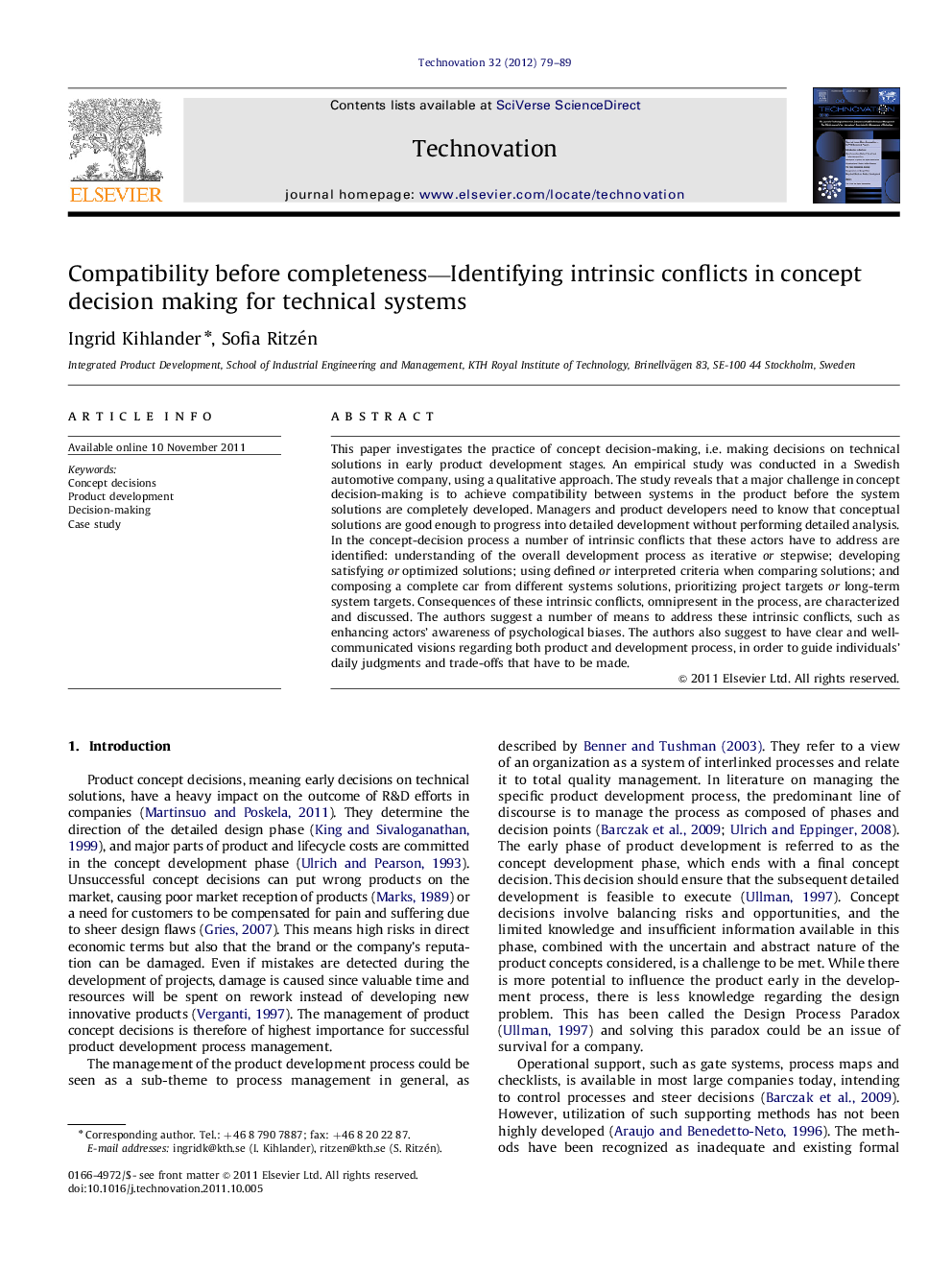| Article ID | Journal | Published Year | Pages | File Type |
|---|---|---|---|---|
| 1022173 | Technovation | 2012 | 11 Pages |
This paper investigates the practice of concept decision-making, i.e. making decisions on technical solutions in early product development stages. An empirical study was conducted in a Swedish automotive company, using a qualitative approach. The study reveals that a major challenge in concept decision-making is to achieve compatibility between systems in the product before the system solutions are completely developed. Managers and product developers need to know that conceptual solutions are good enough to progress into detailed development without performing detailed analysis. In the concept-decision process a number of intrinsic conflicts that these actors have to address are identified: understanding of the overall development process as iterative or stepwise; developing satisfying or optimized solutions; using defined or interpreted criteria when comparing solutions; and composing a complete car from different systems solutions, prioritizing project targets or long-term system targets. Consequences of these intrinsic conflicts, omnipresent in the process, are characterized and discussed. The authors suggest a number of means to address these intrinsic conflicts, such as enhancing actors' awareness of psychological biases. The authors also suggest to have clear and well-communicated visions regarding both product and development process, in order to guide individuals' daily judgments and trade-offs that have to be made.
► Concept decision-making is characterized by uncertainty and judgments. ► We have conducted an empirical study in Swedish automotive industry. ► Main challenge in concept decision-making: achieve compatibility before completeness. ► Actors in the process have to handle a number of intrinsic conflicts on a daily basis.
